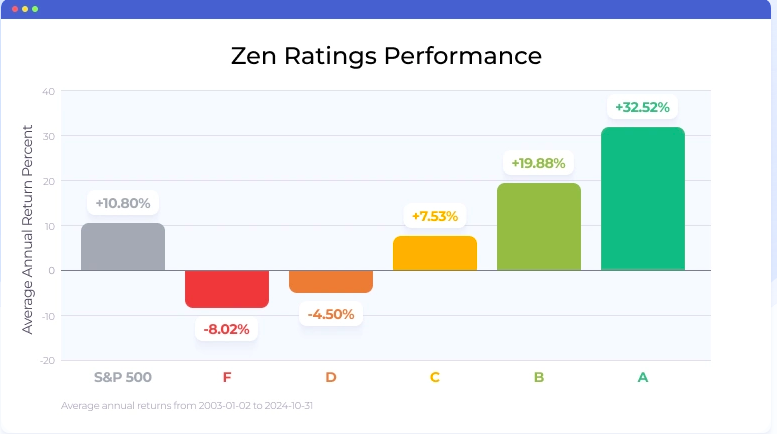20 Excellent Reasons On Picking AI Stock Trading Platform Websites
20 Excellent Reasons On Picking AI Stock Trading Platform Websites
Blog Article
Top 10 Suggestions For Evaluating The Effectiveness And Reliability Of Ai Stock Trading Platforms
Examining the accuracy and effectiveness of AI analysis and stock prediction trading platforms is crucial to ensure that you're using an AI tool that will provide reliable insights and predictions. Here are 10 top tips to help you assess these platforms.
1. Backtesting Results
What to look out for: Determine whether the platform provides backtesting to test how its predictions would have performed on the past data.
The reason it is important: Backtesting helps validate the AI model's accuracy by comparing predictions to actual outcomes from the past.
Look for platforms that offer the possibility of setting up backtesting parameters.
2. Real-time Performance Monitoring
What to watch for: See the response of the platform in real time market conditions.
What's important It is because the platform's real-time performance is a better indicator of its performance than relying solely on historical backtesting.
Tip : You can use a demo account, or a trial version of the software to keep track of the real-time movement and compare it to your forecasts.
3. Prediction Error Metrics
What to look for: Evaluate metrics like Mean Absolute Error (MAE) and the Root Mean Squared Error (RMSE), or R-squared, to measure the accuracy of predictions.
Why It Matters: These metrics provide a quantitative measure of how accurate the predictions are to the actual results.
Tip: Platforms that publicly disclose their data tend to be more transparent and reliable.
4. Win Rate and Success Ratio
What to check: The platform's win ratio (percentage for correct predictions) and the rate of success (profitability based upon forecasts).
Why it matters Why it matters: A high winning rate and success ratio indicates better predictability and profitability.
Be aware that no system can be perfect.
5. Benchmarking Market Indices with Benchmarking
What to look out for: Examine the predictions and performance of the platform with major market indices.
Why It's Important This will help you determine if your platform outperforms, or underperforms, the overall market.
Look for consistency in performance, not only gains over a short amount of time.
6. Congruity in Market Conditions
What to look for: Check how the platform performs under different market conditions.
What is the significance of it A strong platform works well in all markets, not just those that have favorable conditions.
Tip Test the platform's forecasts during volatile periods and market crashes.
7. Transparency in Methodology
What to look for What to Look for: Learn AI algorithms and models (e.g. neural nets, reinforcement learning).
What is important : Transparency is important because it helps you determine the scientific accuracy and reliability of the system.
Avoid platforms that employ "black box models" that don't clarify how to generate predictions.
8. User Reviews and Independent Testing
What to Look For When choosing a platform: Read the reviews of users, and look for tests that are independent or independent assessments.
What's important: Independent reviews and testing provide unbiased insights into the platform's accuracy and performance.
Look through forums like Reddit or copyright to read what others have said.
9. Risk-Adjusted Returns
What to Look for What to look for: Evaluate the performance of your platform using risk-adjusted indicators such as the Sharpe Ratio and Sortino Ratio.
Why It Matters What is important? on the level at which risk is taken to produce returns. This gives a more complete picture of performance.
Sharpe Ratio is an excellent indicator of returns adjusted for risk.
10. Long-term Track Record
What to look for: Find out the overall performance of the platform over time (e.g. 3 to 5 years).
The reason it's important: Long term performance is a more reliable indicator of reliability as than short-term performance.
Avoid platforms with only short term success or results that have been cherry-picked.
Bonus Tip: Test with an account that is a demo
You can try out predictions on the platform in real time without risking any money, by signing up for a free trial account or demo account. This lets you test the accuracy and performance of the platform on your own.
Follow these tips to thoroughly assess the accuracy, efficiency, and reliability of AI stock prediction and analysis platforms. Then, you can select a platform that best aligns with your trading objectives and risk tolerance. Be aware that there is no perfect trading platform The best approach is to blend AI insights with your own analysis. Take a look at the top rated official source for ai trade for website examples including investing ai, chatgpt copyright, ai for investment, best ai trading software, ai stock trading bot free, incite, best ai stock, ai stock, best ai stock, ai investment platform and more.
Top 10 Tips For Assessing Regulatory Compliance Using Ai For Stock Predicting/Analyzing Trading Platforms
The compliance with regulatory requirements of trading platforms that employ AI to predict/analyze price movements is a crucial factor. Compliance assures that a platform's operations are within the legal frameworks. The data of the users is secure and the financial regulations are followed, which reduces any risk of legal issues. Here are the top 10 suggestions on how to assess the compliance of these platforms.
1. Check the Licensing and Registration
The regulatory bodies: Make sure the platform is certified and registered with relevant financial regulatory agencies (e.g. SEC in U.S.A., FCA UK, ASIC Australia).
Broker partnerships: Verify that brokers integrated with the platform are licensed.
Public records: You can look on the official website of the regulatory body to see if the platform is registered and whether there have had any violations over the years.
2. Review Data Privacy Compliance
GDPR: When operating in the EU or offering services to customers in the EU the platform must comply with the General Data Protection Regulation.
CCPA for users living who reside in California, verify conformity with the California Consumer Privacy Act (CCPA).
Data handling policy: Make sure you read the privacy policies to understand the ways in which data of users is stored and collected.
3. Evaluating Anti-Money Laundering / AML measures
AML Policies: Ensure that the platform has AML policies that are able to stop and detect money laundering.
KYC procedures - Check that the platform follows Know Your Customer procedures for authenticating user identities.
Transaction monitoring: Check whether the platform monitors transactions for suspicious activity and if it reports it to the appropriate authorities.
4. Make sure you are in compliance with Trading Regulations
Market manipulation: Ensure the platform has safeguards to protect against market manipulation like spoofing or wash trading.
Order types: Check whether the platform is in compliance with the regulations regarding types of orders.
Best execution : Ensure that the platform employs top execution techniques to execute trades at a competitive cost.
5. Cybersecurity Assessment
Data encryption: Ensure that the platform has encryption in place to protect user data in transit and in rest.
Incident response: Verify that the platform has a plan for incident response in place to deal with cyber-attacks or data breaches.
Certifications: Make sure the platform has cybersecurity certifications (e.g., ISO 27001, SOC 2).
6. Evaluate Transparency and disclosure
Fee disclosure: Make sure the platform clearly discloses the total amount of fees, which includes extra or hidden charges.
Risk disclosure: Make sure there are clear disclosures of risks, specifically for leveraged or high-risk trading strategies.
Performance reporting - Check for precise and transparent reports on performance that are provided by the platform for its AI models.
7. Check for compliance with International Regulations
Trading across borders If you're trading internationally, be sure the platform you are using is in compliance with all applicable regulations.
Tax reporting: Check if the platform offers tools or reports that help users adhere to tax regulations.
Sanctions compliance - Ensure that the platform adheres with international sanctions and does permit trading only with the countries or entities that are banned.
8. Assessing Record-Keeping and Audit trails
Transaction records: Make sure the platform records detailed details of every transaction, both for reasons of auditing and regulatory purposes.
User activity logs (logs): Check to determine if the platform is tracking the user's activities, including logins and trades. Also, make sure that account settings are altered.
Audit readiness: Check if the platform has the necessary documentation and logs in case of a regulatory audit.
9. Evaluate Compliance with AI-Specific Regulations
Algorithmic rules for trading: If the trading platform uses algorithms, ensure that it complies to the regulations of MiFID II for Europe or Reg. SCI for the U.S.
Fairness and bias: Find out whether the platform modifies or checks its AI models to ensure fair and ethical trading.
Explainability: Some regulations require that platforms explain AI-driven predictions or decisions.
10. Review User Commentaries and Historical Regulatory The History
User reviews: Conduct research to assess the credibility of the platform in terms of the regulatory conformity.
Examine the regulatory history to determine if there have been penalties or fines for violations of regulations.
Third-party audits: Check if the platform undergoes regular audits by a third party to ensure compliance with regulations.
Bonus Tips
Legal consultation: Discuss with an expert in law on the compliance of the platform with relevant laws.
Free trial period: You are able to avail a demo or a free trial to evaluate the features that ensure compliance of the platform and its documentation.
Support for customers: Ensure that the platform has support available for questions or issues with respect to compliance.
With these guidelines you can identify the level of compliance with regulations between AI stock trading platforms. This will enable you to choose a company which is legal and will protect your interests. Compliance is important since it not only reduces legal risks, but builds trust and confidence in the platform. View the top click for source on investing with ai for more recommendations including best ai stocks, stock predictor, how to use ai for copyright trading, ai software stocks, best ai for stock trading, stock trading ai, chart analysis ai, best ai stocks to buy now, ai tools for trading, best ai trading platform and more.